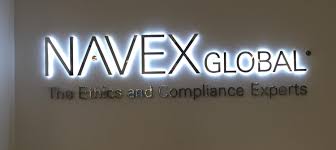Environmental, Social, and Governance (ESG) Global Survey Validates that ESG is a Growing Priority for Businesses

NAVEX, the leader in integrated risk and compliance management software, shares key findings from a survey of 1,250 managers and senior executives on ESG practices at companies across the U.S., U.K., France and Germany. The survey results indicate that ESG measures remain a strong and growing priority for businesses in 2022, especially as they begin to emphasize a balanced focus across environment, social and governance factors.
Among the top findings:
- Organizations are continuing to invest in and prioritize ESG. The vast majority of respondents say their company has either increased its focus (46%) on ESG this year or that its focus will stay the same (41%). Only 3% of respondents report plans to decrease spending on ESG factors in 2022, an even smaller group than the 6% who reported plans to decrease ESG spending in 2021.
- 83% of respondents agree strongly or somewhat that a business’ brand reputation is impacted by ESG factors.
- Nearly a third (29%) of respondents rate all ESG factors as equally important to their company’s business. All other respondents were significantly more likely to rate Environment (33%) and Social issues (25%) as more important than Governance (13%).
“ESG is no longer an optional business imperative as stakeholders now expect organizations to address, measure and report on issues related to corporate, environmental and social responsibility,” said Karen Alonardo, VP of ESG Solutions, NAVEX. “Today’s data reflects organizational commitment to evaluate their ESG programs now, build confidence in their performance and illustrate their progress to key stakeholders—especially with ESG regulation on the horizon.”
See related article: OneTrust Named a Leader in Inaugural Sustainability Management Software Report
ESG Effectiveness
Respondents increasingly believe their companies should have a formal process or program for measuring and reporting on ESG metrics. Of those respondents who say their company does not have a formal process or program, nearly 70% believe they should—a 14% increase over 2021.
Just one out of three respondents say their organization’s performance against ESG metrics is very effective and the percentage of respondents who believe their company is performing very effectively was down from 2021 across E, S and G metrics—showing there is much room for improvement and perhaps a reflection of organizations gaining a more nuanced understanding of the complexities of ESG.
- 31% of respondents say their company’s performance against Environmental metrics is very effective
- 35% of respondents say their company’s performance against Social metrics is very effective
- 31% of respondents say their company’s performance against Governance metrics is very effective
U.S. Shows Strong ESG Momentum
Momentum around ESG in the U.S. shows no sign of slowing, with U.S. respondents most likely (55%) to say their company plans to increase spending on ESG factors this year. U.K. respondents (51%) weren’t far behind, followed by Germany (42%) and France (40%).
Of respondents whose companies do not have a formal ESG process or program, those in the U.K. broadly agree (32% strongly, 46% somewhat) that their company should have a formal process or program. Comparatively, U.S. respondents were mostly likely to strongly agree (38%) their company should have a formal process or program.
Respondents from France, Germany and the U.K. were most likely to say Environment is the element of ESG most important to their company’s business reputation, while U.S. respondents were mostly likely to say they believe all elements of ESG are equally important to their company’s business reputation.
| Elements of ESG most important to business reputation, by country: | ||||
| Factors Equally Important | Environment | Social Issues | Governance | |
| U.S. | 34% | 29% | 24% | 12% |
| U.K. | 31% | 35% | 24% | 10% |
| France | 27% | 31% | 28% | 14% |
| Germany | 19% | 40% | 27% | 14% |
Source: NAVEX












